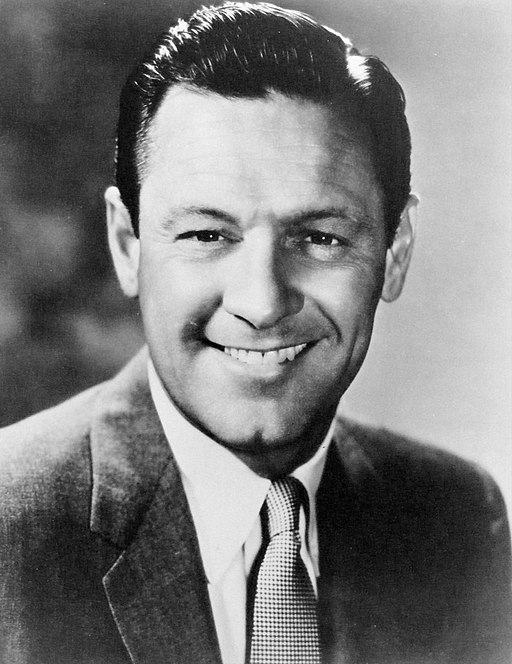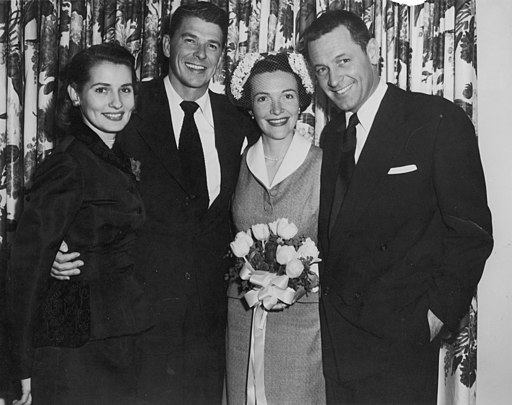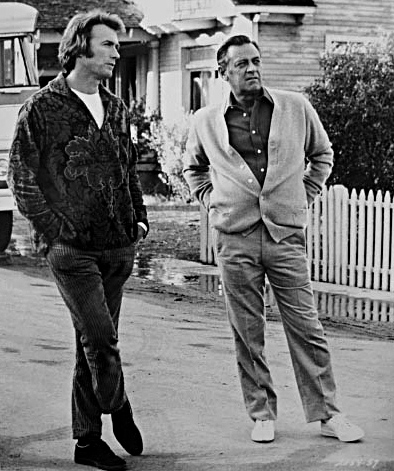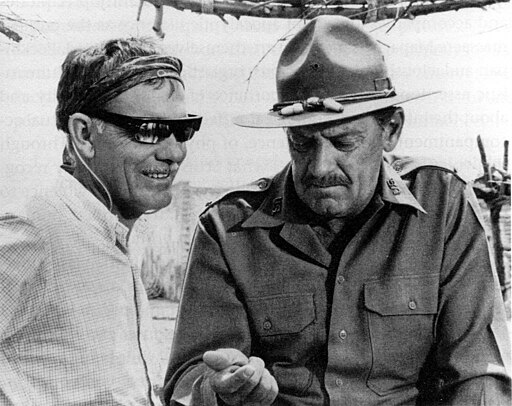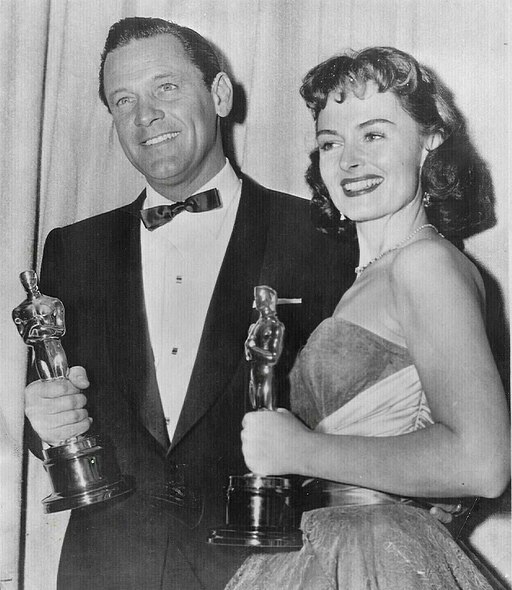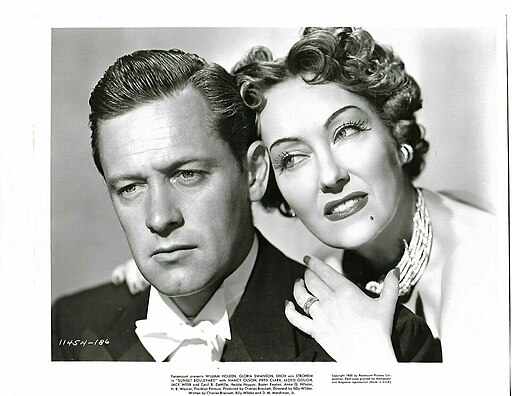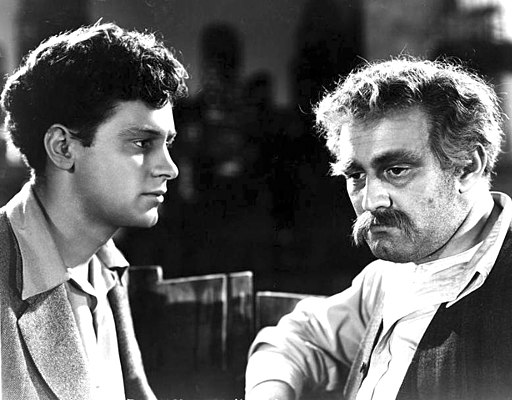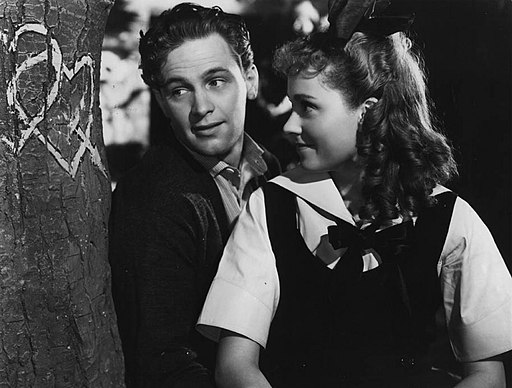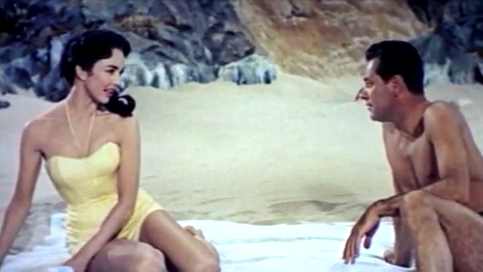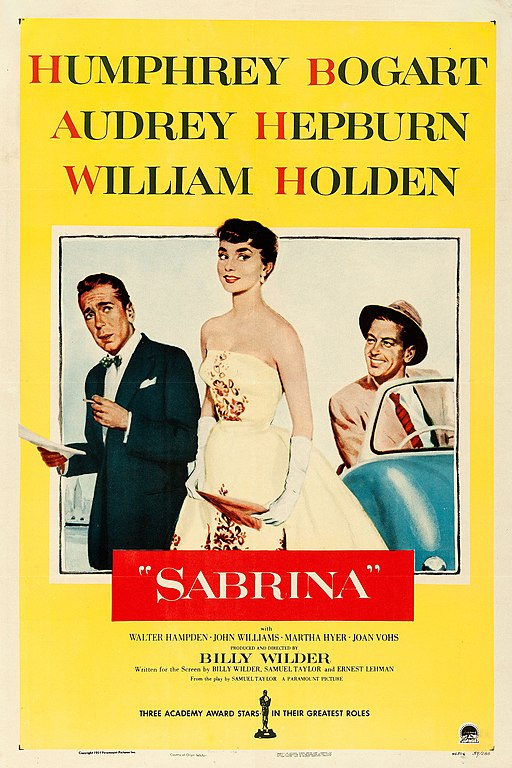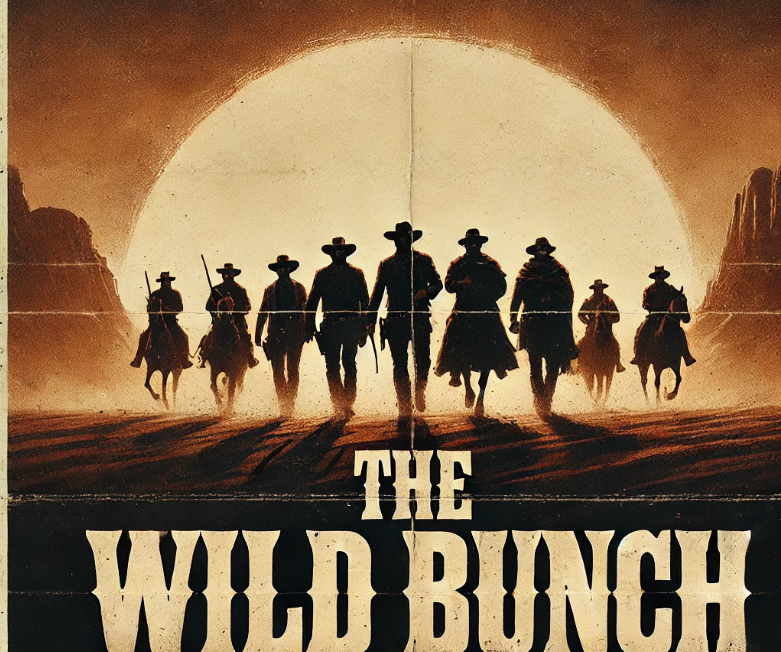William Holden
back| Full Name | William Franklin Beedle Jr. |
| Stage Name | William Holden |
| Born | April 17, 1918 |
| Birthplace | O'Fallon, Illinois, USA |
| Died | November 12, 1981 |
| Buried | William Holden's ashes were scattered in the Pacific Ocean |
| Married to | Brenda Marshall (real name: Ardis Ankerson) from 1941 until their divorce in 1971 |
| Children | Holden had three children. He and Brenda Marshall adopted two sons, Peter Westfield Holden and Scott Porter Holden. Additionally, they had a daughter, Virginia Holden, from Marshall's previous marriage, whom Holden also adopted. |
| Notable films | Sunset Boulevard (1950) - Stalag 17 (1953) - The Bridge on the River Kwai (1957) - Sabrina (1954) - The Wild Bunch (1969) - Picnic (1955) |
William Holden
The “Golden Boy” of Hollywood
William Holden was a distinguished American actor whose career spanned over three decades. His breakthrough role in "Sunset Boulevard" (1950) set the tone for a series of memorable performances in films like "Stalag 17" (1953), for which he won an Academy Award, "The Bridge on the River Kwai" (1957), and "Network" (1976).
William Holden was often referred to as the "Golden Boy" of Hollywood, a nickname that originated from his early role in the film "Golden Boy" (1939). This nickname not only alluded to his breakout performance but also fittingly encapsulated his image as one of Hollywood's most cherished and luminous stars.
Related
William Holden (1918 – 1981)
Biography and Overview of his Career
Born as William Franklin Beedle Jr. on April 17, 1918, in O'Fallon, Illinois, Holden was the eldest of three children. His family moved to South Pasadena when he was three years old. Holden's father was an industrial chemist and his mother a schoolteacher. From an early age, he was exposed to a mix of Midwestern pragmatism and the more free-spirited Californian lifestyle.
Education and Early Career
Holden was initially more interested in athletics than acting. He attended South Pasadena High School, where he was involved in sports. It was at Pasadena Junior College that he was discovered by a talent scout from Paramount Pictures, leading to his first role in the film "Golden Boy" in 1939. His performance as a violinist turned boxer showcased his potential as a leading man.
Path Towards Success
Holden's early career was interrupted by World War II. He served as a second lieutenant in the U.S. Army Air Forces, where his experience would later inform his performances in war films. After the war, his career really began to flourish. He starred in several successful films in the late 1940s, but it was his role in "Sunset Boulevard" (1950) that catapulted him to stardom. His portrayal of the down-on-his-luck screenwriter Joe Gillis earned him critical acclaim.
Marriages and Personal Life
In 1941, Holden married actress Brenda Marshall. The couple adopted two sons, Peter and Scott, and Holden also became the stepfather to Marshall's daughter, Virginia. Despite his successful career, Holden's personal life was fraught with challenges, including struggles with alcoholism. His marriage to Marshall ended in divorce in 1971.
Passions and Interests
Holden was known for his passion for wildlife conservation. He co-founded the Mount Kenya Safari Club and was actively involved in various wildlife preservation initiatives. This passion for nature and wildlife was a significant part of his life away from the camera.
Tragic Death and Legacy
Holden's life came to a tragic end on November 12, 1981, in Santa Monica, California. He died alone in his apartment after falling and severely injuring his head, a result of his chronic alcoholism. His body was discovered four days later. The news of his death shocked and saddened fans worldwide.
A Short Introduction to William Holden:
Analysis of his Acting Style:
William Holden's acting style was a blend of understated realism, charismatic presence, and a naturalistic approach that resonated deeply with audiences. His performances were marked by a certain authenticity, often bringing a sense of rugged sincerity and subtle intensity to his roles.
Understated Realism
Holden was known for his ability to portray characters in a very believable and relatable manner. He didn't rely on theatrical exaggeration; instead, his performances were grounded in a realism that made even ordinary characters fascinating. This was particularly evident in films like "Sunset Boulevard," where he played a down-on-his-luck screenwriter, and "Stalag 17," in which his portrayal of a cynical POW won him an Academy Award. His style was a departure from the melodramatic norm of the era, making him a forerunner in the kind of naturalistic acting that would become prevalent in later decades.
Charismatic Screen Presence
Holden had an undeniable charm and screen presence that made him a natural leading man. He could convey a lot with a simple expression or a small gesture, giving depth to his characters in a subtle but effective way. His charisma was not the flamboyant kind; rather, it was a quiet, magnetic quality that drew viewers in. In romantic roles, such as in "Sabrina" alongside Audrey Hepburn, his charm was palpable, adding a layer of depth to the romantic dynamics of the film.
Versatility and Range
Throughout his career, Holden demonstrated a remarkable range, seamlessly transitioning between different genres and characters. He was as convincing in war dramas as he was in romantic comedies. His ability to adapt to various roles without losing his inherent style was a testament to his skill as an actor. This versatility allowed him to maintain a successful career over several decades, a feat not easily achieved in Hollywood.
Emotional Honesty
One of the most striking aspects of Holden's acting was his ability to convey a sense of emotional honesty. Whether he was playing a love-stricken bachelor, a hardened soldier, or a conflicted businessman, he brought a level of emotional truth to his performances that resonated with audiences. This emotional honesty made his characters multi-dimensional and relatable.
Influence and Legacy
Holden's acting style had a significant influence on future generations of actors. His method of blending realism with a magnetic screen presence paved the way for the more nuanced and naturalistic acting styles that would become popular in later years. Actors who followed in his footsteps benefited from the path he helped forge, where realism and depth of character became as important as star power.
Cause of Death:
William Holden's death was a tragic and poignant end to the life of one of Hollywood's most iconic actors. He died on November 12, 1981, at the age of 63, in his apartment in Santa Monica, California. The cause of his death was attributed to an accidental fall, which was compounded by his chronic alcoholism.
According to reports, Holden had been alone at the time of his accident. He apparently slipped and fell, hitting his head on a bedside table. The injury caused a severe laceration and subsequent bleeding. Unfortunately, he did not seek medical attention after the fall. It's believed that he may have been unconscious or incapacitated after the fall, and he ultimately bled to death. His body was discovered several days later, which suggests that he had been deceased for some time before he was found.
Holden's struggle with alcoholism was well-known, and it had been a persistent issue throughout much of his adult life. This addiction likely contributed to the circumstances leading to his accidental fall. The tragedy of his death was felt deeply in the film community and among his fans worldwide. It highlighted the often-hidden struggles faced by public figures and brought attention to the dangers of alcoholism.
Memorable Quotes from William Holden:
From His Films:
- "Sunset Boulevard" (1950): As Joe Gillis, Holden delivered the iconic line, "I am big! It's the pictures that got small." This line, though spoken by Gloria Swanson's character Norma Desmond, is closely associated with Holden's character as the narrator who reflects the dark side of Hollywood.
- "Stalag 17" (1953): Playing Sgt. J.J. Sefton, he says, "If I ever run into any of you bums on a street corner, just let's pretend we've never met before." This line underscored the cynicism and bitterness of his character in the film.
- "Network" (1976): In a poignant moment, his character Max Schumacher declares, "I'm mad as hell, and I'm not going to take this anymore!" This line, although delivered by Peter Finch's character, becomes a central theme that Holden's character grapples with throughout the film.
Personal Quotes:
- On Acting: William Holden once remarked, "I'm no actor, and I've got 64 pictures to prove it." This self-deprecating comment humorously belies the critical acclaim and respect he earned as a performer.
- On Hollywood: Reflecting on the film industry, Holden stated, "Hollywood is a place where they place you under contract instead of under observation." This quote highlights his insight into the often surreal and scrutinizing nature of the film business.
- On Success: He wisely observed, "Success is a public affair. Failure is a private funeral." This quote reflects his understanding of the highs and lows of fame, especially in the entertainment industry.
Awards and Recognition:
Academy Awards
- 1950: Nominated for Best Actor for "Sunset Boulevard."
- 1953: Won Best Actor for "Stalag 17."
- 1976: Nominated for Best Actor in a Supporting Role for "Network."
Emmy Awards
- 1974: Nominated for Outstanding Lead Actor in a Limited Series for "The Blue Knight."
Golden Globe Awards
- 1954: Nominated for Best Actor – Motion Picture Drama for "Stalag 17."
- 1955: Nominated for Best Actor – Motion Picture Drama for "The Country Girl."
- 1956: Nominated for Best Actor – Motion Picture Drama for "Picnic."
- 1960: Nominated for Best Actor – Motion Picture Drama for "The Horse Soldiers."
- 1974: Nominated for Best TV Actor – Drama for "The Blue Knight."
- 1977: Nominated for Best Actor – Motion Picture Drama for "Network."
BAFTA Awards
- 1951: Nominated for Best Foreign Actor for "Sunset Boulevard."
- 1958: Nominated for Best Foreign Actor for "The Bridge on the River Kwai."
Cannes Film Festival
- 1954: Holden's film "The Country Girl" was entered into the 1954 Cannes Film Festival.
Other Honors and Recognitions
- Holden was honored with a star on the Hollywood Walk of Fame, located at 1651 Vine Street.
- In 1980, he was inducted into the Hall of Great Western Performers at the National Cowboy & Western Heritage Museum.
- His performances in films like "Sunset Boulevard," "Stalag 17," and "Network" continue to be celebrated and have earned him a lasting legacy in the history of cinema.
Movies starring William Holden:
1930s
- 1939: "Golden Boy"
- A violinist is torn between his music and boxing career after being discovered by a boxing promoter.
1940s
- 1940: "Our Town"
- An adaptation of Thornton Wilder's play about life, love, and death in a small town.
- 1940: "Arizona"
- A rugged pioneer woman struggles to build a cattle empire in the Arizona Territory.
- 1941: "I Wanted Wings"
- A story of young men training to become pilots in the U.S. Army Air Corps.
- 1941: "Texas"
- Two friends on opposite sides of the law compete for the same woman in post-Civil War Texas.
- 1942: "The Fleet's In"
- A sailor bets he can kiss a popular singer, leading to comedic and romantic entanglements.
- 1942: "Meet the Stewarts"
- A comedy about a newlywed couple adjusting to married life.
- 1942: "Young and Willing"
- Aspiring actors share an apartment with a theatrical producer who could help their careers.
- 1943: "Blaze of Noon"
- A tale of daredevil mail pilots and the risks they take.
- 1947: "Dear Ruth"
- A serviceman falls for a girl who unknowingly used her sister's name while corresponding with him.
- 1948: "Rachel and the Stranger"
- A widow sells her services for a year to a farmer in this romantic frontier drama.
- 1948: "The Dark Past"
- A remake of "Blind Alley," about a psychoanalyst and a gangster who takes him hostage.
- 1948: "Apartment for Peggy"
- A war veteran and his wife move into a small apartment with a retired professor.
- 1949: "Streets of Laredo"
- Two outlaws on the run join forces with a young gunfighter.
- 1949: "Miss Grant Takes Richmond"
- A comedy about a bookkeeper unwittingly used in a real estate scam.
1950s
- 1950: "Father Is a Bachelor"
- A wandering troubadour helps five orphaned children find a home.
- 1950: "Sunset Boulevard"
- A struggling screenwriter becomes entangled with a faded silent film star.
- 1950: "Born Yesterday"
- A tycoon hires a journalist to educate his girlfriend, leading to unexpected results.
- 1950: "Union Station"
- A police detective tries to rescue a hostage from her kidnapper in a crowded train station.
- 1951: "Submarine Command"
- A World War II submarine commander is haunted by his past decisions.
- 1952: "Boots Malone"
- A down-on-his-luck sports agent tries to turn his life around.
- 1953: "Stalag 17"
- A POW drama set in a German camp during World War II.
- 1953: "The Moon Is Blue"
- A light-hearted romantic comedy about the adventures of an architect and an aspiring actress.
- 1953: "Escape from Fort Bravo"
- A Union cavalry officer struggles to keep his prisoners in check during the Civil War.
- 1954: "Executive Suite"
- A power struggle ensues in a large corporation following the death of the CEO.
- 1954: "Sabrina"
- A chauffeur's daughter becomes the center of attention for two wealthy brothers.
- 1954: "The Bridges at Toko-Ri"
- A story of a naval fighter pilot in the Korean War and his mission against enemy bridges.
- 1955: "Love Is a Many-Splendored Thing"
- A widowed doctor and an American reporter fall in love in Hong Kong.
- 1955: "Picnic"
- A drifter shakes up a small Kansas town during a Labor Day picnic.
- 1955: "The Country Girl"
- A director hires an alcoholic actor for a comeback role, with tensions rising with his wife.
- 1956: "Toward the Unknown"
- A tale of test pilots at Edwards Air Force Base.
- 1957: "The Bridge on the River Kwai"
- British POWs are forced to build a railway bridge for their Japanese captors in Burma.
- 1958: "The Key"
- A love story set against the backdrop of World War II's naval battles.
- 1959: "The Horse Soldiers"
- A Union cavalry officer leads a mission deep into Confederate territory.
1960s
- 1960: "The World of Suzie Wong"
- A love story between an American architect and a Hongkien bar girl.
- 1962: "Satan Never Sleeps"
- A tale of two priests in China trying to protect their mission from Communist persecution.
- 1962: "The Counterfeit Traitor"
- A story of espionage during World War II.
- 1964: "Paris When It Sizzles"
- A screenwriter and his secretary try to complete a script in Paris.
- 1966: "Alvarez Kelly"
- A cattle herder is forced to help the Confederacy during the Civil War.
- 1966: "The 7th Dawn"
- A drama set in Malaya during the uprising against British rule.
- 1968: "The Devil's Brigade"
- A World War II film about a joint American-Canadian commando unit.
- 1969: "The Wild Bunch"
- An aging group of outlaws look for one last big score in the changing American West.
1970s
- 1971: "The Revengers"
- A rancher forms a posse to hunt down the killers of his family.
- 1973: "Breezy"
- A romantic film about a relationship between a middle-aged man and a young woman.
- 1974: "The Towering Inferno"
- A disaster film about a fire in the world's tallest skyscraper.
- 1976: "Network"
- A satirical film about a TV network exploiting a deranged former anchor's ravings for ratings.
- 1978: "Damien: Omen II"
- A horror film about a teenager realizing his satanic heritage.
- 1978: "Fedora"
- A film about a faded film star trying to make a comeback.
- 1979: "Ashanti"
- A drama about a doctor's quest to rescue his kidnapped wife from slave traders.
- 1979: "Escape to Athena"
- A World War II adventure about prisoners plotting an escape from a German camp.
1980s
- 1980: "When Time Ran Out"
- A disaster movie about an impending volcanic eruption on a tropical island.
- 1981: "S.O.B."
- A dark comedy about a Hollywood producer trying to revive his failing career.

